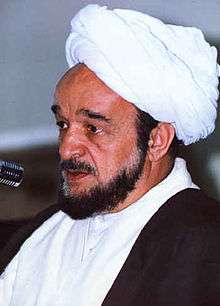Mohammad-Taqi Ja'fari

Allameh Mohammad-Taqi Ja'fari (1923 – 15 November 1998) born in Tabriz was an Iranian scholar, thinker, and theologian.
Biography
After elementary school, Muhammad Taqi studied at the Talebieh seminary, and then moved to Tehran and Qom, where he studied under some of the leading religious scholars of his time, before leaving for Najaf and attending the Najaf School of Theology.
Muhammad Taqi Jafari spent 11 years in Najaf and learned from great scholars. He was conferred on the greatest degree of jurisprudence – ijtihad – when he was 23.
When Jafari returned to Iran, he continued to study the new waves of thought that were rapidly spreading throughout intellectualism. He undoubtedly approved the basic idea of intellectualism, which was what had drawn him from traditional thoughts to study modern ones; the study that dominated his 60-year academic career.
As an explorer of anthropological domains, Muhammad Taqi endeavored to discover mankind accurately, so he began by practically showing value for human beings, and presenting the highest of moral values and constructive patterns in his behavior.
Works
Allameh wrote many books on a vast variety of fields, the most prominent of which are his 15-volume Interpretation and Criticism of Rumi's Masnavi, and his unfinished, 27-volume Translation and Interpretation of the Nahj al-Balagha. These two major works of Jafari contain his most important thoughts and ideas in fields like anthropology, sociology, moral ethics, philosophy and mysticism.
References
External links
|